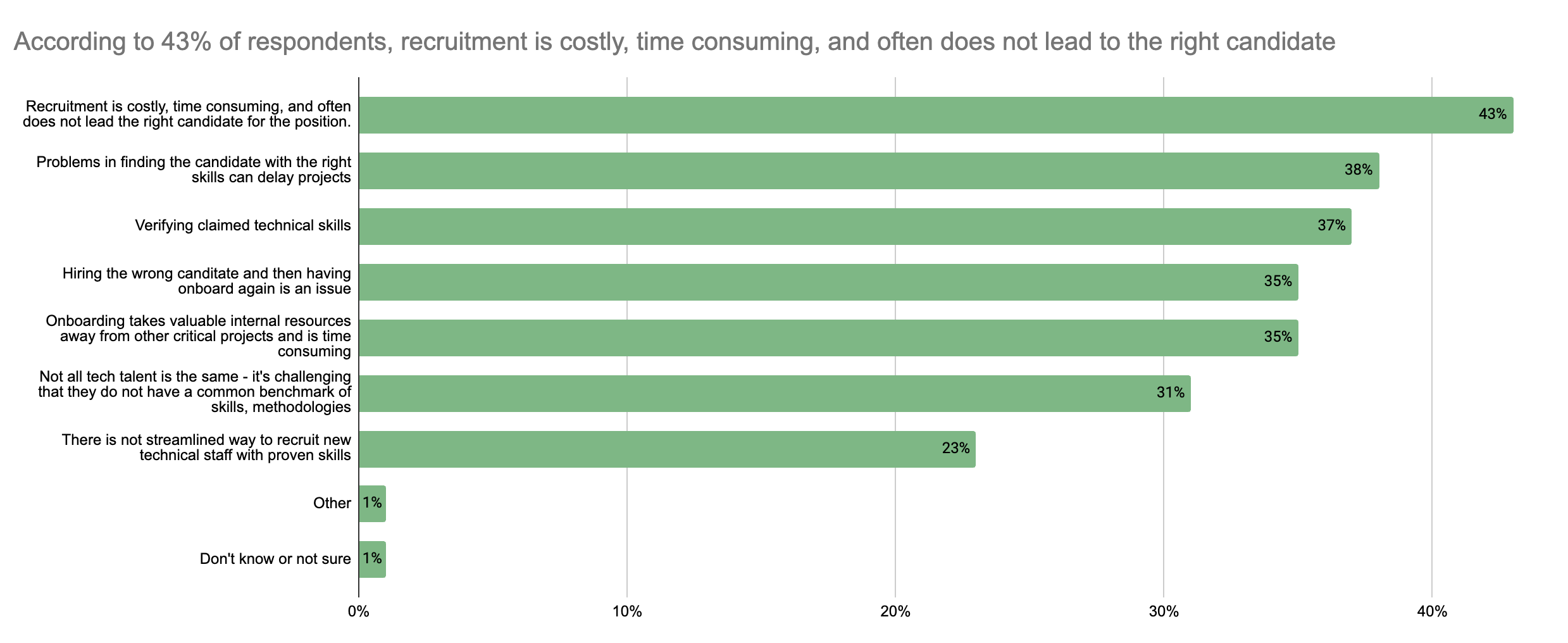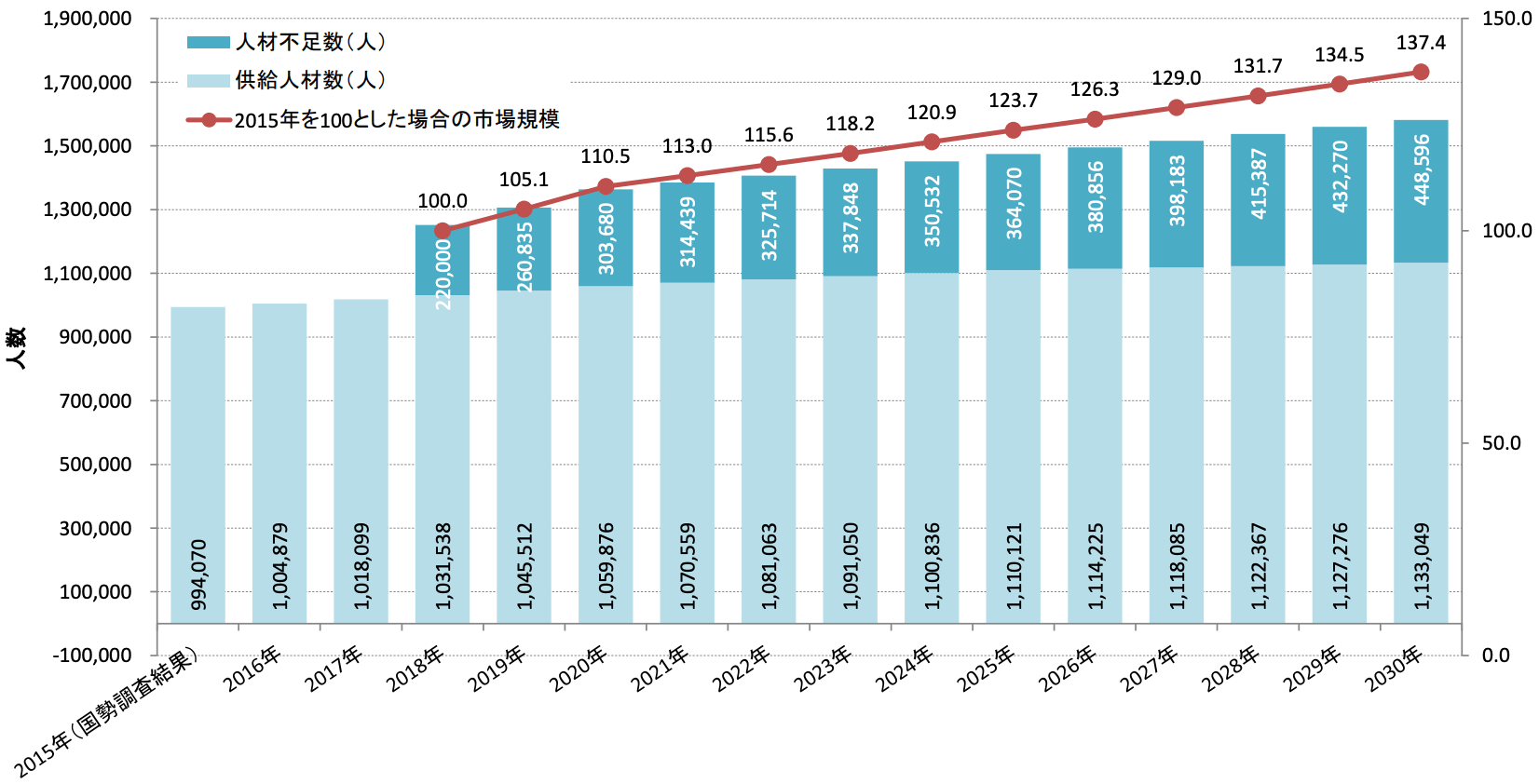Blog
The Future of Japan’s IT Sector: Challenges and Strategies
The Future of Japan’s IT Sector: Challenges and Strategies
Japan's IT sector faces significant challenges, including slow adoption of new technologies, a talent shortage worsened by demographic shifts, and linguistic barriers. To stay competitive, Japanese companies should adopt Agile hiring models and collaborate with foreign IT talent, offering flexibility and innovation.
Written by
Ariadne Mavrogenis
Last updated
JUL 23, 2024
Topics
#business
Length
4 min read

“In the race for digital transformation, the ability to innovate and adapt quickly is more important than ever. The challenge lies not just in finding skilled talent, but in rethinking our approach to how we build and grow our teams.”
Japan, historically a technological leader, now faces significant challenges in the IT sector. While the global tech industry has encountered setbacks such as high inflation, rising interest rates, and macroeconomic uncertainties, Japan's slower adoption of new technologies has exacerbated its difficulties. According to the IMD (Swiss Management School) digital competitiveness ranking, Japan is currently ranked 32nd. The "Digital Transformation in Japan" survey indicates that Japanese companies are about two years behind global trends, averaging 10 points below their global counterparts. The nation grapples with a highly competitive talent landscape, compounded by an aging population and a shortage of skilled IT professionals. Despite efforts to accelerate digitization, Japanese companies struggle to find the right digital partners and talent, leading to project delays and intensified competition for top candidates.
New Approaches to Recruitment in Japan
Traditional hiring models often struggle to keep pace with this rapid evolution, as sourcing, recruiting, and onboarding new talent can be time-consuming. Moreover, finding individuals with niche or emerging skills presents a particular challenge, exacerbated by the limitations of traditional long-term contracts.
According to a survey, the primary hiring challenge reported by 43% of organizations is the cost, time consumption, and difficulty in finding suitable candidates. This challenge is compounded by 38% of organizations reporting that difficulties in finding suitable candidates can lead to project delays, while verifying claimed technical skills poses an additional hurdle, cited by 37%. Another problem in the search for IT professionals is the lack of proven methods to accurately assess the skills of a particular developer. This often means companies are not selecting the right person, leading to the need to restart the recruitment process. Additionally, the onboarding process is costly.

Furthermore, Japanese companies face a significant lack of English proficiency, causing them to miss out on many international best practices. Japanese developers generally lag behind their foreign counterparts, primarily due to language barriers and a lack of English language skills. This is a major problem, as the primary language of programming is English. Consequently, the latest updates and resources are released in English first, allowing developers who speak English to learn new skills earlier. Therefore, Japanese companies have to rely more and more on foreign developers if they want to keep up with their competitors.
The estimated deficit of around 350,000 software engineers in 2024, a number expected to increase annually for the next several years, underscores the urgency for innovative hiring solutions.

Lionel Kaidatzis, Managing Director of Morgan McKinley Japan, commented: “Despite a concerted effort to drive the digital transformation agenda forward, Japan still ranks low compared to competitor countries in digital competitiveness due to a shortage of software engineers. Organizations can improve the choice of skills available and gain access to experience with cutting-edge technologies if they look at non-Japanese speaking overseas-based professionals.”
In response to these challenges, many Japanese organizations, such as Sony, Rakuten, and Mercari, are working with foreign IT talent and turning to Agile hiring models, such as the Team Augmentation Model, to streamline their talent acquisition processes. Unlike traditional hiring, which involves lengthy recruitment cycles and fixed-term contracts, Agile hiring emphasizes flexibility, collaboration, and scalability. Additionally, team augmentation provides companies with a steady supply of the specific skills they need, as the partner company handles the recruitment and replacement of developers if they leave. This approach enables organizations to quickly assemble high-performing teams tailored to specific project requirements, driving innovation and maintaining competitiveness in today's dynamic market landscape.
Conclusion:
The challenges facing Japan's IT sector underscore the critical need for strategic adaptation in a rapidly evolving global landscape. Despite historical leadership in technology, Japan now grapples with significant hurdles such as slow adoption of new technologies, a competitive talent shortage exacerbated by demographic shifts, and linguistic barriers hindering access to international best practices.
To maintain competitiveness, Japanese companies are increasingly embracing Agile hiring models and collaborating with foreign IT talent. These approaches offer flexibility, scalability, and enhanced innovation capabilities tailored to specific project demands. However, the persistent deficit of skilled software engineers highlights the urgency for continuous innovation in talent acquisition strategies and concerted efforts in digital transformation.
Looking ahead, Japan's ability to overcome these challenges will depend on its capacity to foster a culture of innovation, adaptability, and international collaboration within its IT sector. By leveraging global expertise and embracing agile methodologies, Japan can position itself to not only catch up but also lead in the era of digital transformation, ensuring sustained growth and competitiveness in the global tech ecosystem.
Scriptide is a highly skilled software development company that specializes in custom, complex B2B software solutions. We offer a wide range of services, including digital transformation, web and mobile development, AI, blockchain, and more.
Get a free IT consultation. We are excited to hear from you.
You might also like these articles!
Click for details
Japan’s IT Sector in 2026
As Japan steps into 2026, its IT sector is quietly transforming. Companies face growing pressure to innovate, yet a persistent shortage of skilled professionals is slowing the adoption of key technologies like public cloud and AI. Without the right talent and strategies, organizations risk falling behind in an increasingly digital and interconnected global economy.
#business
•
JAN 20, 2026
•
4 min read
Click for details
Cultural Foundations of UX: Understanding Japanese User Behavior
Effective UX design starts with understanding the people you’re designing for. Culture shapes how users interpret information, navigate interfaces, and make decisions. That’s why a design that works well for a Western audience won’t necessarily work for an Eastern one. Culture significantly influences how we perceive the world and how we interact with technology. When we understand the cultural variables that shape our users’ perceptions, we can more accurately identify what needs improvement and design experiences that feel intuitive to them. After reading this article, you will gain insight into how deeply culture impacts UX design, and why a one-size-fits-all approach rarely works across different regions.
#business
•
DEC 08, 2025
•
5 min read